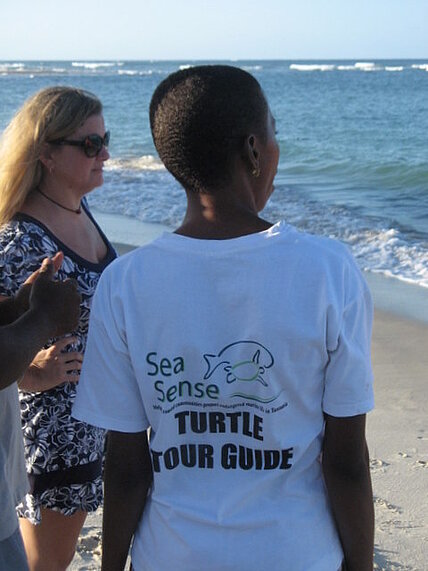SEA TURTLE ECOTOURISM

The community based nest monitoring and protection programme implemented by Sea Sense over the past 20 years has increased the survival rate of turtle eggs significantly. Consistently high hatching success rates have enabled the development of a sea turtle ecotourism initiative at Tanzania’s three largest nesting sites (Mafia, Kigamboni and Pangani). The initiative is being led by Conservation Officers and local ‘Turtle Tour Guides’ and is generating a sustainable source of revenue through visitor donations and viewing fees.
Sea turtle ecotourism also creates awareness amongst local communities, many of whom have limited access to information about threats to marine resources including sea turtles. Viewing a nesting sea turtle or watching a nest hatch provides a first-hand opportunity to observe the direct output of a conservation programme and can help to improve knowledge and understanding of the value of biodiversity conservation. We encourage members of the local community including school pupils to participate in sea turtle hatching events. Tour Guides and Conservation Officers provide that vital link and are responsible for disseminating information about forthcoming hatching events to their communities.
Sea turtle ecotourism provides benefits to the wider community, beyond those individuals who earn direct income from the initiative. Half of all ecotourism revenue is donated back to local communities and has contributed to a number of community development projects including refurbishment of a village dispensary and a village water project. In Ushongo in Pangani District, many visitors report that they go there specifically to watch turtles hatch. Ushongo village receives a percentage of tourism revenue from hotels and lodges in Ushongo, so an increase in visitor numbers provides an important economic boost to the community. The community is very aware of this benefit and is very proud of the turtle ecotourism initiative.



